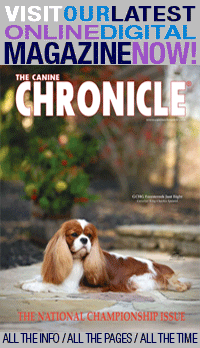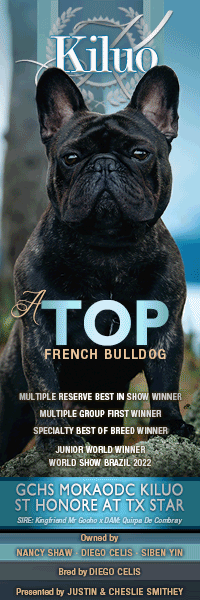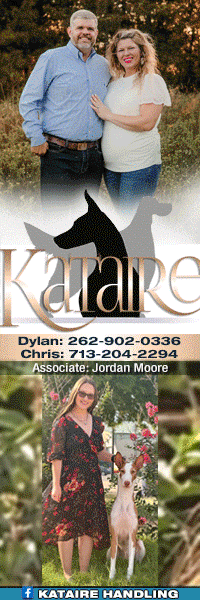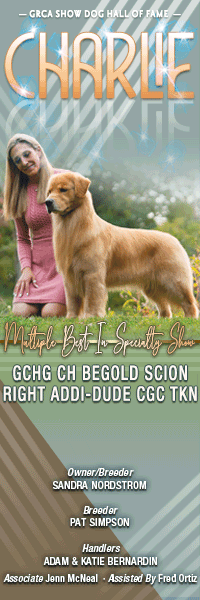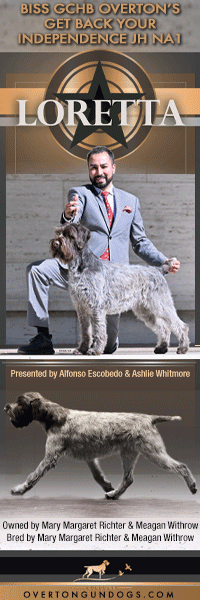Tax Matters
Click here to read the complete article
Dog Breeding and the IRS Hobby Loss Rule
by John Alan Cohan Attorney at Law
One of the most powerful weapons of the IRS is the hobby loss rule, in which the IRS seeks to deny tax deductions to those who claim to be operating a business, but who in fact are carrying on a hobby.
A great many individuals have a passionate interest in dog breeding, and devote a significant amount of time and energy to this activity. It is truly a labor of love.
Many dog breeders have converted their hobby interest into a business venture. If you turn your hobby into a business, this enables you to take advantage of tax deductions that otherwise would not be available. For many of you this means you can deduct the expenses against your principal source of income.
Under the hobby loss rule, only taxpayers who operate a bona fide business can take business deductions. To the IRS, a business is a venture operated to make money and is run in a businesslike manner. In contrast, a venture that consistently loses money, has elements of personal pleasure or recreation, and is operated in a haphazard manner, could be classified as a hobby, in which case you will not be allowed to deduct your expenses against other sources of income.
For most individuals, it is difficult to make a profit from breeding, but that does not stop them from claiming tax deductions, with the hopes of eventually making a profit and even recouping past losses. Other people decide to open a full-service venture, combining breeding with grooming and other services, either out of their home or in a formal pet shop.
Many dog breeders have been successful in Tax Court, even though they have had a history of losses. The following is a model case in which the taxpayer did everything right and convinced the Tax Court to rule in his favor.
Samuel Keanini of Honolulu, Hawaii, and his wife converted their love of poodles into a breeding business called “Pua’s Poodles.” They attended a 3-month seminar on how to manage a new business. They built a kennel at their home and started breeding poodles, as well as grooming dogs. They acquired quality breeding stock and entered into written co-ownership agreements with other dog owners. Under these agreements they shared the cost of purchasing and breeding various dogs, and shared in the litters.
They hired professional dog handlers to show their poodles at dog shows, kept records of their breeding stock, and won some titles that substantially increased the value of their breeding stock.
They also conducted a dog grooming operation, and offered services as a quarantine station for individuals who needed to have dogs placed in quarantine. (Animals brought to the State of Hawaii must be placed under quarantine for 120 days in a kennel at an approved quarantine station.) They used written contracts for the dogs they held in quarantine. They advertised the breeding operation in local newspapers and national dog publications. Mr. Keanini worked full-time with the Honolulu Police Department, and part-time in the breeding operation; his wife devoted full-time to the dog activity.
They had a separate checking account for the activity, and prepared monthly and quarterly income and expense statements for the operation. They kept a daily log of mileage and expenses in using their car in the dog operation. At times they hired part-time dog groomers.
They implemented cost-saving practices such as purchasing supplies for the grooming operation from wholesalers. The co-ownership agreements enabled them to reduce the cost of acquiring breeding stock.
They sustained losses for a period of five years, but these losses decreased steadily each year until in the sixth year where they realized a small profit ($1,201).
The IRS claimed they were engaged in a hobby, and they took their case to Tax Court, which ruled in their favor. The key points of this case are:
1. Be sure to get all permits and licenses associated with the breeding venture, and comply with animal health inspection requirements.
2. If you are not familiar with how to run a small business, take a course on the subject before embarking on a dog-breeding venture. Confer with successful breeders in the industry to get tips on how you might best proceed.
3. Hire professional dog handlers to show your best dogs in competition. The goodwill derived from winning national championship titles enhances your reputation.
4. It is smart to share costs by entering into co-ownership agreements with other dog owners. Under these agreements you share the cost of purchasing and breeding various dogs, and share in the litters.
5. Some breeders build good size kennels and make extra money by boarding dogs and cats or, as in the above case, operating as a quarantine station under state law.
It is always important to advertise, particularly in dog magazines, and to maintain complete books and records on individual dogs, maintain a separate checking account, consult with advisers on how to make money with your particular breed, and to change methods of operation as needed to improve chances of making a profit.
John Alan Cohan is an attorney representing people in federal and state tax disputes, IRS appeals, and Tax Court litigation, and is a long-standing author of a legal advice column published in numerous sporting magazines. In addition, he advises organizations on compliance with newly enacted laws and regulations. John is also author of the book, Turn Your Hobby Into A Business — The Right Way. He can be reached at: (310) 278-0203, or email at johnalancohan@aol.com. His website is JohnAlanCohan.com.
Short URL: https://caninechronicle.com/?p=95687
Comments are closed
